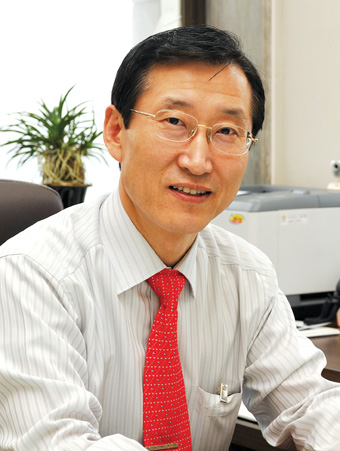Knowledge Economy Committee Explores Ways of Tiding over Economic Crisis
Woori Financial Group focused on cutting costs with creative corporate culture
 Economic tsunami ¡ª the global economic recession launched by the U.S. mortgage crisis ¡ª has brought havoc on Korea. The Korean economy has been mired in a deep downturn since the second half of last year.
Economic tsunami ¡ª the global economic recession launched by the U.S. mortgage crisis ¡ª has brought havoc on Korea. The Korean economy has been mired in a deep downturn since the second half of last year.
However, thanks to national efforts to cope with the crisis, the Korean economy is seeing an upward revision from the previously pessimistic economic growth forecasts. We hear such optimistic signs as global research and analysis institutions picking Korea as one of the model countries that are recovering faster from the economic downturn.
The National Assembly began its 2009 regular session on Sept. 1. The plans to check diverse policies, bills and budget proposals related to the Ministry of Knowledge Economy, the Small Business Administration and the Korean Intellectual Property Office including 71 government agencies responsible for the real economy, taking into account the changed economic conditions.
Here is a look at the Knowledge Economy Committee¡¯s activities at a glance, which will be conducted during the regular session. First, the committee will review policies regarding the real economy and will conduct discussions during an interpellation of the government.
In particular, the Committee had a record of 100 percent on-time auditing, and it saw the Committee members¡¯ participation rate hovering at 99.4 percent during the 2008 government interpellation. The Committee also did its job in substance ¡ª conducting a full-fledged policy-oriented inspection, not a transitory one. Specifically, the Committee published 300 reports and took stock of a total of 292 admonitions made during the interpellation to establish a system of reporting short-term tasks before the deliberation of the budget bill and mid- and long-term tasks on a quarterly basis.
The current government interpellation, the second one since the inauguration of the 18th National Assembly, is expected to focus on such policies related to the real economy as trade, industry and energy, particularly those on the new growth engines and green growth the Lee Myung-bak government is pursuing.
In the case of law deliberations, the Committee is expected to have in-depth discussions on measures related to the livelihoods of those in the low-income bracket. They also include the pending controversial issues that remained unresolved after the extraordinary session.
In particular, a public hearing has already been held on a measure on the revision of the Act on the Development of the Distribution Industry to curb large-sized marts and super-supermarkets (SSMs). Stakeholders¡¯ business rights related to the General Agreement on Trade in Services (GATS) and other issues are expected to be hotly debated. For example, 16 similar bills on the restriction of SSMs have been submitted.
Such measures as the introduction of a renewable portfolio standard (RPS) and a revision of the Act on the Community Energy Business regarding the restriction of owning a stake in the Korea District Heating Corp. are expected to draw much attention since they have something to do with public utility charges, and furthermore with the economy of those in the low-income bracket.
The regular session of the National Assembly will take up the 2010 budget deliberation bill which is presented in early October. The MKE requested its 2010 budget of 14.830 trillion won, a 1.6 percent increase from the previous year.
The 2010 MKE budget request is drawn based on its focus on expanding investments for securing future growth potential such as new growth engines and green growth, and the capability to explore resources in order to overcome crude oil price hikes and raise Korea¡¯s own energy development rates.
The Knowledge Economy Committee will likely deliberate the MKE budget request and explore ways of distributing resources properly based on government inspections and the settlement of the 2008 budget so that national competitiveness and economic growth can be attained and the economy of those in the low-income bracket can be boosted.
Looking at things the Committee will have to deal with by year-end, we are predicted to have our hands full with a tight schedule. Given the lingering effects of the global economic crisis on the national economy and the livelihood of those in the low-income bracket as well as unfavorable external and internal political and economic situations, parliamentary roles are more essential than ever. In this regard, the Committee has a lot of things to handle. nw
By Kwon Dai-soo, Senior staff director of the Knowledge Economy Committee, the National Assembly
3Fl, 292-47, Shindang 6-dong, Chung-gu, Seoul, Korea 100-456
Tel : 82-2-2235-6114 / Fax : 82-2-2235-0799